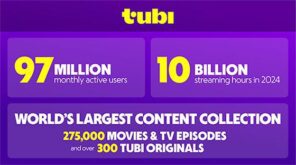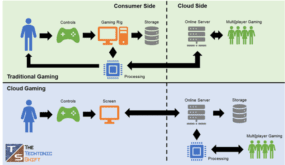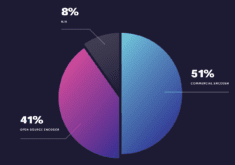In a surprise move, Adobe has announced that they will stop the future development of Flash on mobile platforms. Here's a quote from their official blog post.
"HTML5 is now universally supported on major mobile devices, in some cases exclusively. This makes HTML5 the best solution for creating and deploying content in the browser across mobile platforms. We are excited about this, and will continue our work with key players in the HTML community, including Google, Apple, Microsoft and RIM, to drive HTML5 innovation they can use to advance their mobile browsers.
Our future work with Flash on mobile devices will be focused on enabling Flash developers to package native apps with Adobe AIR for all the major app stores. We will no longer continue to develop Flash Player in the browser to work with new mobile device configurations (chipset, browser, OS version, etc.) following the upcoming release of Flash Player 11.1 for Android and BlackBerry PlayBook. We will of course continue to provide critical bug fixes and security updates for existing device configurations. We will also allow our source code licensees to continue working on and release their own implementations.
These changes will allow us to increase investment in HTML5 and innovate with Flash where it can have most impact for the industry, including advanced gaming and premium video."
In terms of background, the various reports that I've read tend to indicate that Adobe wasn't getting the support they needed from vendors like Google to make Flash work effectively on mobile platforms. That doomed the Flash player to deliver a sub-par experience, which helps no one.
In addition, as desktop CPUs become more powerful, Flash apps on the web have become more CPU intensive, requiring faster CPUs to run smoothly. At the other end of the CPU power spectrum, Flash-enabled tablets and phones simply don't have the power to execute the Flash apps that run smoothly on desktop computers. Again, Flash produces a sub-par experience, which helps no one.
My immediate reaction (read probably ill-advised and subject to change) is that one of two things will happen in the short term. One is that two classes of websites will be created; one completely decked out with Flash, the other more simple and targeted for mobile devices. That's already being done by some vendors like Converse, who, if you visit it with an iPad, sends you to a simple e-commerce site, but if you visit with a computer, sends you to an immersive Flash experience. The other is that many vendors, seeking to minimize development costs, will produce a single site using HTML5 that lacks much of the immersion that Flash can provide.
In terms of video, remember that HTML5 doesn't have many key technologies now being used or implemented by the primary distributers of non-UGC video on the web (networks, studios, etc). These include adaptive streaming, digital rights management (DRM), peer-to-peer delivery, and in the enterprise space, multi-casting. Remember also that at last count (November 9, 2011), the penetration of HTML5 compatible browsers on connected computers was under 60%. Streaming producers are going to need a plug-in based option for several more years, and Flash is the obvious choice. Flash on the desktop isn't going away any time soon. It just feels like in the mobile space, Adobe decided if they couldn't provide a good experience (for whatever reason), it didn't make sense to provide a bad experience.
If you're a web producer trying to access these mobile devices, your strategy doesn't change much either. You've had to deliver to desktops with one technology and iDevices with another, Android has always been a fractured market. Now you'll likely deliver to all mobiles using a single technology (let's hope) and all desktops with another. Certainly Google's adaption of HTTP Live Streaming in Android 3.0 is a good sign.
Probably also worth mentioning are the layoffs that Adobe announced on November 8, 2011. This is not a company in trouble; they're poised to reach US $1 billion in sales for a quarter for the first time and are solidly profitable. Rather, Adobe seems to binge and purge with employees, with the last major layoff almost exactly 2 years ago, and the news announcements are earily similar. I'm not qualified to comment on the effectiveness of this policy, and my thoughts are with those who lost their jobs.
 Streaming Learning Center Where Streaming Professionals Learn to Excel
Streaming Learning Center Where Streaming Professionals Learn to Excel







